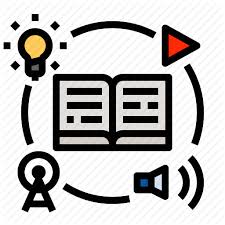Teaching and learning English language - motivation
Abstract
Learning a new language can be difficult, so teaching a new language inherently comes with great obstacles. To effectively teach English to someone new to the language, you have a lot to understand, including the basics of the English language, how speakers acquire a new language, and how to motivate students to succeed when they are struggling. The focus on this paper is on the basics of how to get started, including taking a hard look at how to access the motivations of new students, how to use their previous language and cultural background to your advantage, and how to get them started on the path to English fluency.
References
Collier, V. P. (1988). The Effect of Age on Acquisition of a Second Language for School. New Focus. The National Clearinghouse for Bilingual Education. No: 2, Winter: 1987-1988.
Cooper, P. & McIntyre D. (1998). Effective Teaching and Learning. Teachers’ and Students’ Perspectives. Open University Press. Great Britain: Biddles Limited, Guildford and King’s Lynn.
Crookes, G. & Schmidt, R. (1991). Motivation: Reopening the Research Agenda. Language Learning 41: 469-512.
Davies, C. (1996). What is English Teaching? English, Language, and Education Series. Open University Press. Great Britain: Biddles Ltd, Guildford and Kings Lynn.
Dörnyei Z. (1994). Motivation and Motivating in the Foreign Language Classroom, The Modern Language Journal, 78: 273-284.
Ervin-Tripp, S. M. (1974). Is Second Language Learning Like the First? TESOL Quarterly, 8, 111-127. (NCBE Abstract).
Fathman, A. (1975). The Relationship Between Age and Second Language Productive Ability, Language Learning. 21, 245-253.
Gardner, R.C., & MacIntyre, P.D. (1991). An Instrumental Motivation in Language Study: Who says it isn't effective? Studies in Second Language Acquisition, 13, 57-72.
Gardner, R.C., Lalonde, R.N., and Moorcroft, R. (1985). The Role of Attitudes and Motivation in Second Language Learning: Correlational and Experimental Considerations. Language Learning, 35, 207-227.
Krashen, S. (1982). Principles and Practice in Second Language Acquisition. Oxford: Pergamon Press.
Krashen, S. (1985). The Input Hypothesis: Issues and Implications. New York: Longman.
Kristmanson, P. (2000). Affect in the Second Language Classroom: How to Create an Emotional Climate. Reflexions May//mai 2000 Vol. 19 No. 2
Lenneberg, E. (1976). Biological Foundations of Language. New York: John Wiley and Sons.
McLaughlin, B. (1984). Second Language Acquisition in Childhood. Vol. 1. Preschool Children.(2nd edition). Hillsdale, NJ: Lawrence Erlbaum Associates.
Oxford, R. & Shearin, J. (1994). Language Learning Motivation: Expanding the Theoretical Framework. The Modern Language Journal 78: 12-28.
Reece, I & Walker, S. (1997). Teaching, Training and Learning. A Practical Guide. (Third Ed.). Great Britain: Business Education Publishers Limited.
Shulman, L. (1986). Paradigms and Research Programmes in the Study of Teaching’. In M. Wittrock (ed.). Handbook of Research on Teaching, London: Mcmillan.
Skehan, P. (1991). Individual Differences in Second Language Learning. Studies in Second Language Acquisition 13: 275-298.
Williams, L. (1979). The Modification of Speech Perception and Production in Second Language Learning. Perception and Psychophysics, 26 (2), 95-105.

In submitting the manuscript to the International Journal on Integrated Education (IJIE), the authors certify that:
- They are authorized by their co-authors to enter into these arrangements.
- The work described has not been formally published before, except in the form of an abstract or as part of a published lecture, review, thesis, or overlay journal.
- That it is not under consideration for publication elsewhere,
- The publication has been approved by the author(s) and by responsible authorities – tacitly or explicitly – of the institutes where the work has been carried out.
- They secure the right to reproduce any material that has already been published or copyrighted elsewhere.
- They agree to the following license and copyright agreement.
License and Copyright Agreement
Authors who publish with International Journal on Integrated Education (IJIE) agree to the following terms:
Authors retain copyright and grant the International Journal on Integrated Education (IJIE) right of first publication with the work simultaneously licensed under Creative Commons Attribution License (CC BY 4.0) that allows others to share the work with an acknowledgment of the work's authorship and initial publication in this journal.





1.png)
